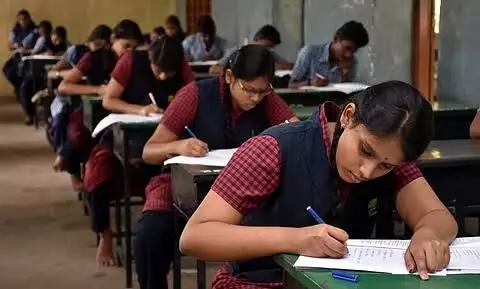Telangana to retain existing SSC public examination assessment pattern for 2025–26 academic year
The 80:20 evaluation ratio was introduced in Telangana several years ago
By Newsmeter Network
Representational Image
Hyderabad: Ending suspense, the Telangana government has decided to retain the existing Secondary School Certificate (SSC) public examination assessment pattern for the 2025–26 academic year.
Under this system, 80 per cent marks are allotted for external evaluation and 20 per cent for internal assessment.
Decision follows detailed review
An official order issued by the School Education Department on Monday confirmed that earlier proposals to alter the ratio have been shelved until further notice.
The decision, signed by School Education Secretary Dr. Yogita Rana, was made after the Director of School Education recommended preserving the current evaluation structure.
The review concluded that the existing model offers a balanced approach between continuous classroom-based assessments and high-stakes public examinations.
Statewide implementation
The department has instructed education officials to enforce the order uniformly across all schools in Telangana. Officials emphasised that the 80:20 ratio not only maintains the integrity of external assessments but also supports the inclusion of Continuous and Comprehensive Evaluation (CCE) methods, which track students’ learning progress throughout the year.
Background
The 80:20 evaluation ratio was introduced in Telangana several years ago to align with CCE guidelines, aiming to balance formal testing with internal assessments such as project work, assignments, and participation.
In recent months, there have been discussions within the department about altering the ratio to increase the weightage of external examinations. However, concerns over increased student pressure and disruption to the current academic rhythm prompted the government to maintain the existing system for now.
Stakeholders welcome move
The Telangana Recognised School Managements Association (TRSMA) hailed the decision as a student-friendly measure. “The pattern reduces exam stress and encourages consistent learning in the classroom rather than relying solely on last-minute preparation,” said TRSMA president S Madhusudhan.